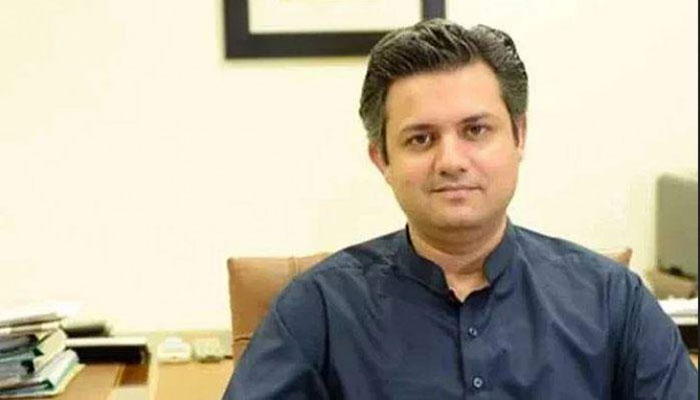Pakistan to start assembling local EVs this year
ISLAMABAD: Under the clean and green initiatives of the government, Pakistan is going to start local assembling of electric vehicles (EVs) by this year, Minister for Energy Hammad Azhar said on Thursday.
The minister said this while addressing a consultative workshop titled “Scaling up Electric Mobility in Pakistan” that was jointly organized by the National Energy Efficiency and Conservation Authority (NEECA) and the UNDP. He said the assembling of the electric motorbikes has already started in the country.
Last year, Pakistan introduced the Electric Vehicles Policy 2020-2025, targeting a robust electric vehicle market having a 30 per cent and 90 per cent share in passenger vehicles and heavy-duty trucks by 2030 and 2040 respectively.
In this policy, new incentives to promote EVs adoption were introduced. Customs duties and sales tax on EVs have been reduced that would help accelerate this transition towards cleaner and efficient mobility, he said.
However, the minister said there are some unique challenges. “We have to address them to achieve our electric mobility goals. The first challenge we are facing is the provision of reliable power supply to charging centers of these vehicles and that would require upgradation of the grid and distribution network.”
The role of EV charging infrastructure is critical. The widespread, accessible public charging infrastructure network is needed to support a robust EV market. The private sector has also started developing charging infrastructure in the country.
The government would fully support the private sector in this regard. The establishment of the regulatory framework to streamline the development of EV charging stations across the country is also needed.
The NEECA is already working on it and the minister urged it and other relevant entities to expedite work on regulation, standardization and licensing policy for the development of charging infrastructure.
The minister said it would not only reduce billions of dollars of oil import bills but also help control pollution in cities and absorb the surplus electricity capacity in the country. Earlier, in his tweets, he said the Iranian government has been requested to normalize its power supply situation, amid load-shedding in Balochistan’s coastal region. “These areas are not connected to the national grid and are dependent on Iranian power supply. Work is under way on connecting these areas with the national grid. This involves laying transmission lines for hundreds of kilometres. This project will be completed within two years,” he said.
In a meeting with the Iranian ambassador, he informed that the power outages in some areas of Balochistan are due to power shortages in Iran. The Iranian envoy assured the minister of speedy restoration of power.
-
 Garrett Morris Raves About His '2 Broke Girls' Co-star Jennifer Coolidge
Garrett Morris Raves About His '2 Broke Girls' Co-star Jennifer Coolidge -
 Winter Olympics 2026: When & Where To Watch The Iconic Ice Dance ?
Winter Olympics 2026: When & Where To Watch The Iconic Ice Dance ? -
 Melissa Joan Hart Reflects On Social Challenges As A Child Actor
Melissa Joan Hart Reflects On Social Challenges As A Child Actor -
 'Gossip Girl' Star Reveals Why She'll Never Return To Acting
'Gossip Girl' Star Reveals Why She'll Never Return To Acting -
 Chicago Child, 8, Dead After 'months Of Abuse, Starvation', Two Arrested
Chicago Child, 8, Dead After 'months Of Abuse, Starvation', Two Arrested -
 Travis Kelce's True Feelings About Taylor Swift's Pal Ryan Reynolds Revealed
Travis Kelce's True Feelings About Taylor Swift's Pal Ryan Reynolds Revealed -
 Michael Keaton Recalls Working With Catherine O'Hara In 'Beetlejuice'
Michael Keaton Recalls Working With Catherine O'Hara In 'Beetlejuice' -
 King Charles, Princess Anne, Prince Edward Still Shield Andrew From Police
King Charles, Princess Anne, Prince Edward Still Shield Andrew From Police -
 Anthropic Targets OpenAI Ads With New Claude Homepage Messaging
Anthropic Targets OpenAI Ads With New Claude Homepage Messaging -
 US Set To Block Chinese Software From Smart And Connected Cars
US Set To Block Chinese Software From Smart And Connected Cars -
 Carmen Electra Says THIS Taught Her Romance
Carmen Electra Says THIS Taught Her Romance -
 Leonardo DiCaprio's Co-star Reflects On His Viral Moment At Golden Globes
Leonardo DiCaprio's Co-star Reflects On His Viral Moment At Golden Globes -
 SpaceX Pivots From Mars Plans To Prioritize 2027 Moon Landing
SpaceX Pivots From Mars Plans To Prioritize 2027 Moon Landing -
 King Charles Still Cares About Meghan Markle
King Charles Still Cares About Meghan Markle -
 J. Cole Brings Back Old-school CD Sales For 'The Fall-Off' Release
J. Cole Brings Back Old-school CD Sales For 'The Fall-Off' Release -
 GTA 6 Built By Hand, Street By Street, Rockstar Confirms Ahead Of Launch
GTA 6 Built By Hand, Street By Street, Rockstar Confirms Ahead Of Launch




